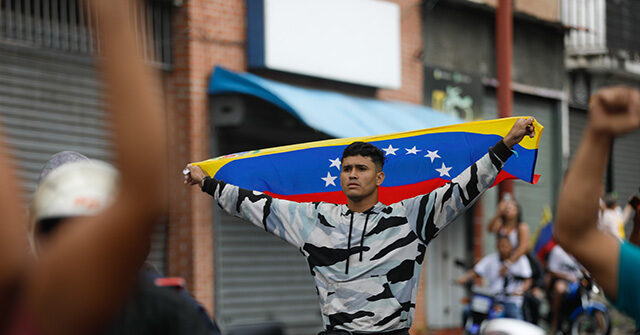In a disturbing report revealed by the local newspaper El Carabobeño, the dire conditions faced by political prisoners in socialist Venezuela have come to light. These detainees, over 500 currently held at Tocuyito prison, have been subjected to horrific living conditions following their arrests after a disputed presidential election in July 2023. The Venezuelan government, under Nicolás Maduro, has not only emptied the prison system but has also established reeducation camps for dissidents. Families of these political prisoners have reported that the detainees are receiving rotten food and contaminated water, leading to severe malnutrition and endangerment of their health.
The family accounts emphasize the desperation and suffering of the detainees, many of whom have only had one visitation since August 26, when they were transferred to Tocuyito. El Carabobeño reveals testimonies from relatives, which depict a grim reality: the food served contains worms and is often decomposing, while water quality is also atrocious. Thus, the psychological and physical well-being of the detainees has deteriorated. Many face absurdly harsh sentences of up to 30 years for charges such as “terrorism,” a label applied to those who participated in protests after the sham election, which the Maduro regime claims he won.
Worse still, many of these detainees were not even participating in the protests but were simply in the vicinity at the wrong time. Families have shared heartbreaking stories that underline the arbitrary nature of these detentions, illustrating that even innocuous behaviors can result in severe punishment. This mass incarceration reflects the regime’s intolerant stance against dissent. The refusal of detainees to accept plea bargains further highlights the unjust nature of their predicament, as they face years of imprisonment without even receiving basic rights or humane treatment.
Testimonies from family members paint an alarming picture of the visitation process, where relatives cannot physically touch their loved ones, resulting in emotional distress. A grandmother described how her grandson, suffering from a severe lack of sustenance, is unable to eat what he is being provided. The psychological toll of these harsh conditions is exacerbated by the lack of medical attention for those with existing health issues. Reports indicate that prisoners with serious medical conditions are not receiving the necessary care or treatment, leading to a state of neglect that exacerbates their suffering.
The situation is made more dire with accounts of malnutrition and illness due to the scarcity and low quality of food. Family members have reported seeing their loved ones cope with the physical consequences of consuming contaminated meals, including instances where food has been deemed inedible and discarded. Human rights abuses extend even further, as prisoners have been reported to face threats and physical coercion to confess to crimes they did not commit. The utter disregard for the health and rights of these detainees underscores the critical state of human rights in Venezuela.
In a desperate attempt to connect with their loved ones, families have resorted to camping outside the prison, using binoculars to catch a glimpse of those detained. Despite their efforts, they face harassment and obstruction from local authorities. Reports of police confiscating their binoculars and regulations preventing prisoners from acknowledging their families illustrate a regime intent on silencing dissent and erasing visibility to their abuses. As the court hearings approach, the lack of transparency and due process raises significant concerns about the fate of these detainees while violating fundamental human rights. The plight of Venezuelan political prisoners remains a painful reminder of the lengths to which repressive regimes will go to stifle dissent and maintain their grip on power.

